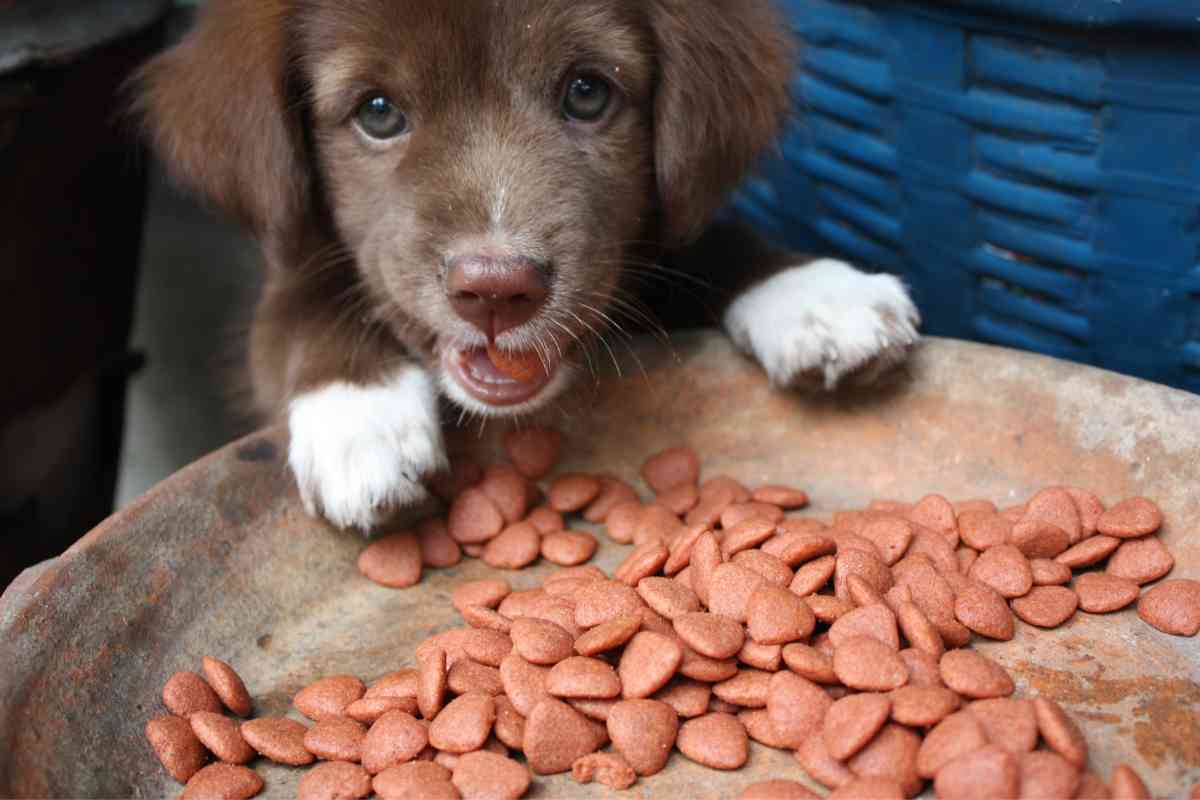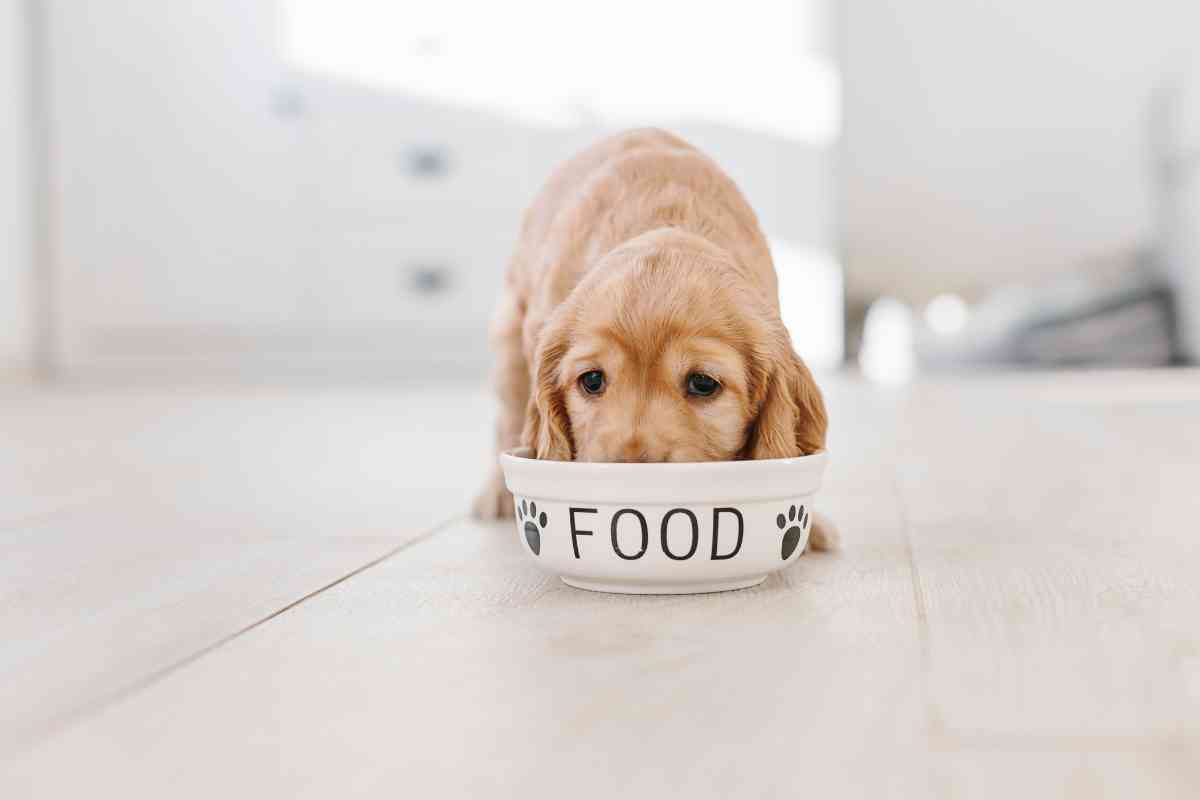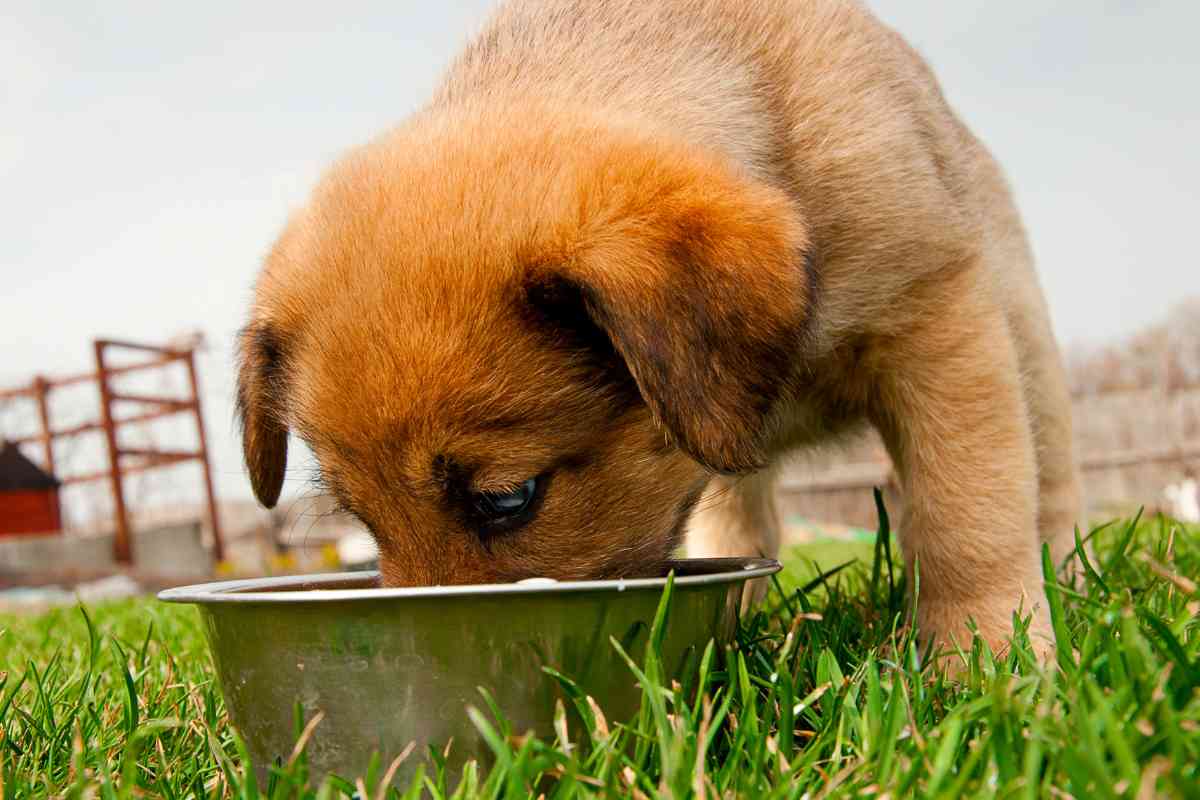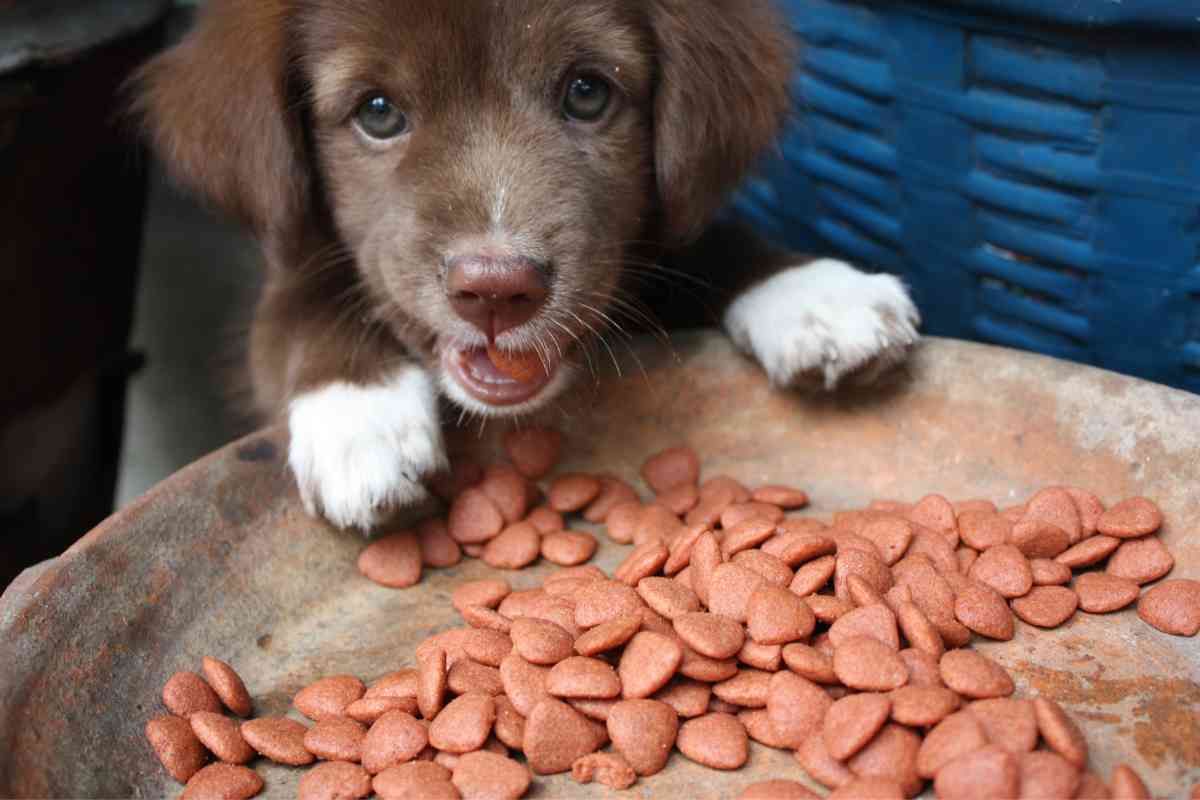Switching Your Puppy From Puppy Food To Dog Food: The Ultimate Guide
If you own a puppy, you will need to switch its food at some point. So, when should you do it? Well, here’s when to switch from

When should I switch my puppy to dog food?
As your puppy grows, you will need to switch its food from puppy food to adult dog food. When to change the food will depend on your dog’s breed. For toy and small breeds, you should switch at around 10 months, 12 months for medium breeds, 15 months for large breeds and 20 months for giant breeds.
Your furry friend deserves a healthy diet and high-quality nutrition to help nourish them and ensure proper growth and development.
And during the puppy stage, their diet will mainly feature foods that will help with their high-energy needs and rapid growth. The right diet is as well the panacea to many of the health challenges that the dog faces.
But as your dog approaches the adult stage, the focus needs to lean towards maintaining a healthy weight.
In light of this, you will at some point, need to switch your dog’s food from
But, we’ve got you covered. In this guide, we will walk you through everything you need to know about switching from
So, if you are wondering when or how to make this switch, then the answers are right here.

How puppy food is Different from Adult Dog Food
Puppies experience rapid growth when young, just like children do. Also, they tend to be more active, compared to older dogs.
And, this explains why
Also,
If the phosphorus or calcium is not sufficient, the puppies may end up with weak bones and the condition might be very difficult to manage.
But, as puppies approach maturity, their growth will slow. Consequently, you will need to adjust their diet, to prevent them from becoming overweight.
As you may expect, if your dog becomes overweight or obese, it may end up with all sorts of health complications. For instance, if your dog is obese, it could develop high blood pressure or heart disease.

When to Switch from puppy food to Dog Food
As we’ve discussed above, it’s extremely important to switch
And this takes us back to our earlier question – when should you switch from
Generally, you can switch from
Here are the recommended guidelines for making the switch from
Toy and Small Dog Breeds
Toy dog breeds weigh less than 12 pounds while small breeds weigh less than 20 pounds as adults.
Also, these dog breeds hit maturity much faster, compared to larger dog breeds. To this end, you will need to make the switch sooner to ensure you maintain the proper balance of fat, protein and calories.
Ideally, you should switch from
Switching from
Medium Dog Breeds
Dog breeds in this category weigh around 20 to 50 pounds when mature. In most cases, the puppies will attain adult weight when they are around 12 to 15 months old.
However, some may attain adult weight when they are around 14 months old. For this category, you should make the switch from
Puppies within this category don’t have special diet needs. You simply need to ensure that the food that you switch to has the right balance of fat and protein.
This combination will help to fuel their metabolism while supporting optimal growth and development.
Large and Giant Dog Breeds
Dog breeds within this category weigh between 50 and 100 pounds at maturity. Usually, large breeds will take over 12 months to hit maturity while giant breeds will take approximately 18 to 24 months to reach adult size. You will also need to feed them a large breed food.
So, if you have such a breed, you will need to feed it
We should mention that as much as the switch should happen around these timelines, the exact time will vary from one dog to the other.
You will need to observe your dog’s feeding habits around these timelines to determine exactly when to make the switch.
For instance, if your puppy is from a medium dog breed and it has started skipping meals when they are around 12 months old, then that’s a sign that they are ready for the switch to adult formula.
Also, if your puppy is leaving food in the bowl and they don’t have any health issues, then it’s probably time to switch from puppy food to adult dog food.
If you happen to have a mixed dog breed, whereby you aren’t sure whether it’s a small breed, medium breed, or large breed, it will be highly advisable to consult a vet.
The vet will inspect your dog’s records and overall health. And with this information, they will be able to recommend when you can make the switch from
How to Switch from puppy food to Adult Dog Food

Choose the Right Food
There are thousands of pet food companies out there. And as you may probably know, not all pet food is of the same quality.
So, when making the switch from
But, if the adult food from your favorite brand is giving your dog issues, then you can explore other alternatives.
When searching for replacement brands, you should look for gently cooked dog food brands. If the food has been cooked at high temperatures, there’s a high chance that the nutrients will be damaged during the process. Also, such food may lead to stomach upsets for your puppy.
Make the Switch Gradually
When it comes to switching your puppy from
In light of this, you should begin by adding smaller amounts of adult dog food to your current
You should then increase the amount of the new formula gradually over a week or two.
By using this approach, your puppy won’t notice that their food has changed, thus increasing the likelihood of them accepting the new formula. And most importantly, you will considerably reduce the risk of stomach upsets in your dog.
Monitor your Dog
You also need to be monitoring your dog’s body condition and health as you make this transition.
If you notice that your dog has started losing weight or the coat is dry and dull during this transition, there’s a chance that the change in diet may be causing these issues. And in such cases, you should consult your vet as soon as possible.
Key Takeaways
- Puppies need a healthy to ensure proper growth and development
- You will need to change your puppy’s diet at some point
- When to switch from
puppy food to adult dog food will depend on your dog’s breed - You should make the switch gradually to prevent digestive upsets